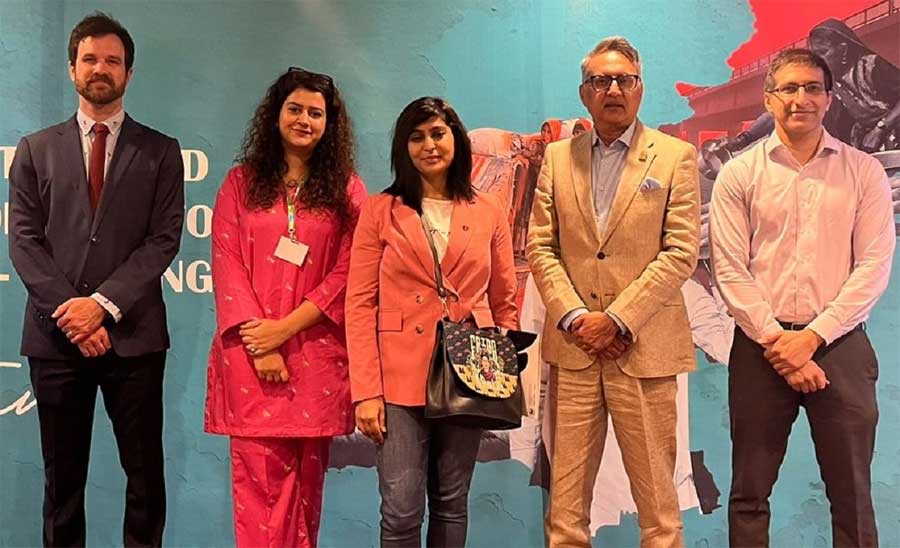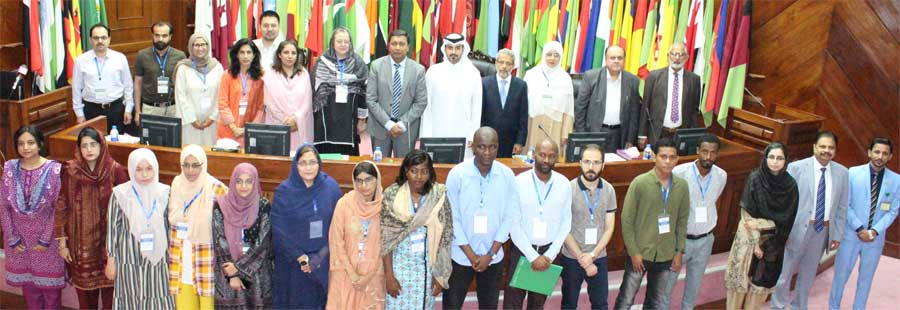LAHORE: The World Wide Fund for Nature (WWF) inaugurated the Climate Resilience Program that aims to proactively identify risks and build resilience to climate change to enhance the resilience of water stewardship and sustainable agriculture in Punjab region.
Launched in global partnership with The Coca-Cola Company, as a first step, WWF organized a two-day workshop titled “Integrated Resilience Action Planning for Climate Change” on World Environment Day, bringing together the collective wisdom of key stakeholders from government entities, non-governmental organizations (NGOs), and the private sector.
“Coca-Cola brings a vast distribution network and a strong sustainable agenda to our decade-long partnership with WWF. We believe we can strengthen our mutual commitments to climate resilience to create an integrated framework and solve for complex climate change disasters,” said Aisha Sarwari, Director Public Affairs, Communications & Sustainability, Coca-Cola Pakistan & Afghanistan Region.
Hammad Naqi Khan, Director General of WWF-Pakistan, highlighted the severe impact of climate change on water resources in Pakistan. He stated, “The devastating floods of 2022 resulted in significant production losses for key crops. These extreme events are clear indications of climate change. Pakistan’s irrigation system, one of the largest globally, suffers from inefficiencies, leading to substantial water loss.
“In this context, it’s vital to recognize the potential role of the corporate sector in providing leadership and implementing water stewardship strategies for better water resource management. WWF-Pakistan is committed to building resilience through initiatives like these. To address water and food security challenges, it is crucial to improve water governance, transform the agri-food system, and enhance institutional capacity building.”
Coca-Cola’s global water strategy focuses on sustainable water security through local water replenishment, advocacy for smart water policies, and responsible water use throughout operations and communities. Under Paani Project, Coca-Cola Icecek has replenished 15 ML of water annually since 2013 and supported 1 million people to access clean drinking water. 35 water filtering units were installed across Pakistan which have an individual capacity of producing over 2,000 liters of clean drinkable water per hour, each serving a community of over 20,000 people per day.
Through The Coca-Cola Foundation’s funding, Indus Earth Trust launched ‘Water For Women’ Project that has replenished 150 ML of water annually since 2017 and supported 2200 households in 40 villages in the Kohistan area, Thatta district. Furthermore, in collaboration with Mountain and Glacier Protection Organization (MGPO), 140,000 people were provided with over 5 million liters of clean water in Gilgit-Baltistan.
Recently, WWF-Pakistan also conducted a watershed health assessment study in the Ravi Basin supported by the grant funding provided by The Coca-Cola Company, which identified key water-related issues in the area. Informed by this local assessment, the next phase of the project will develop interventions that will help develop a Watershed Management Plan. These will cater to the river’s improved water quality and quantity, better ecosystem, and infrastructure improvement and development.
WWF opens Climate Resilience Program




